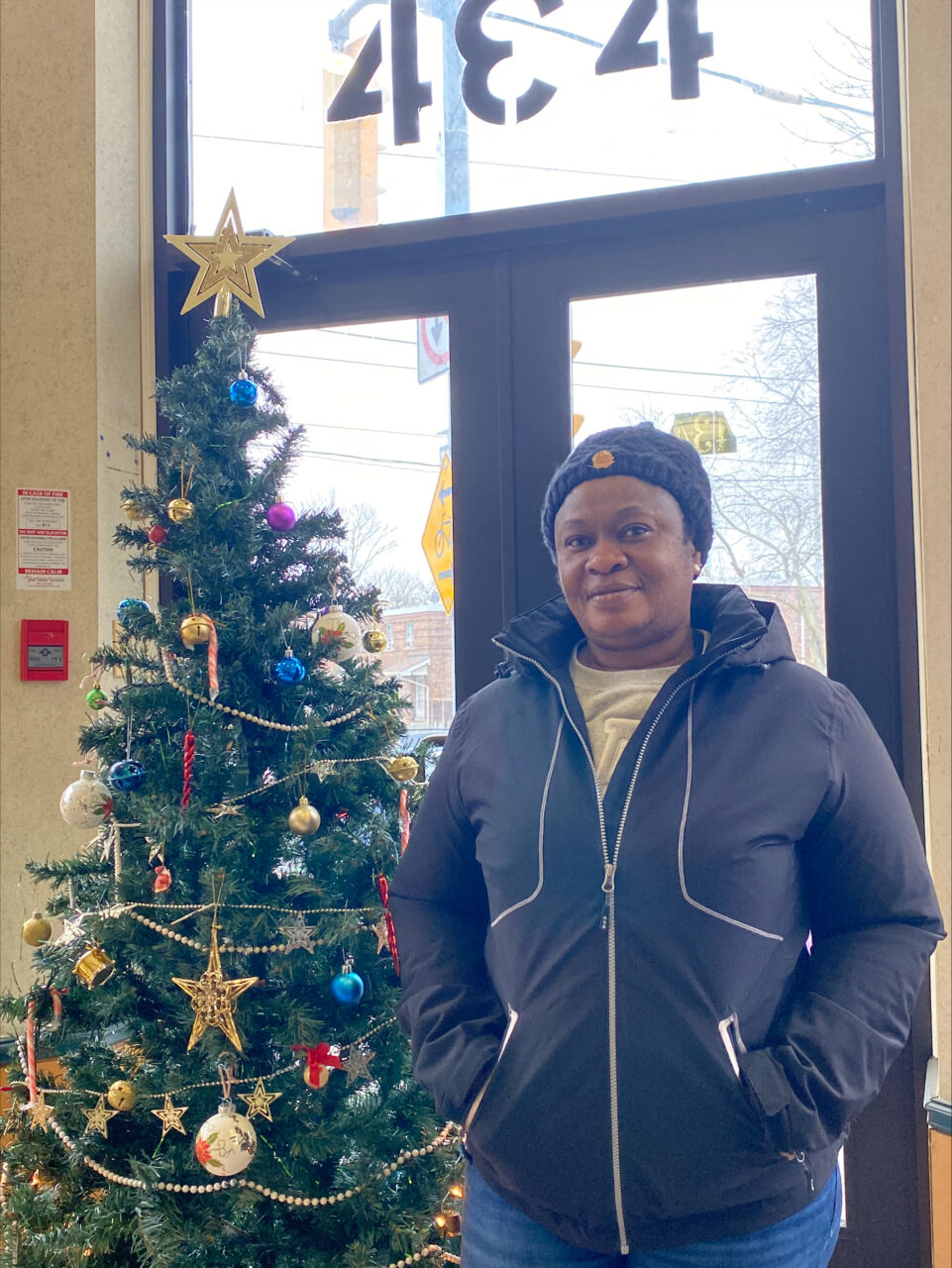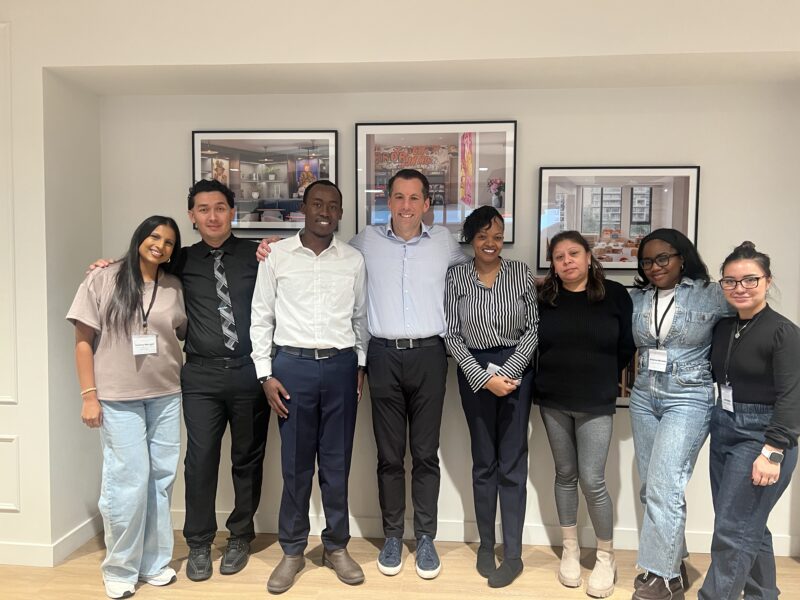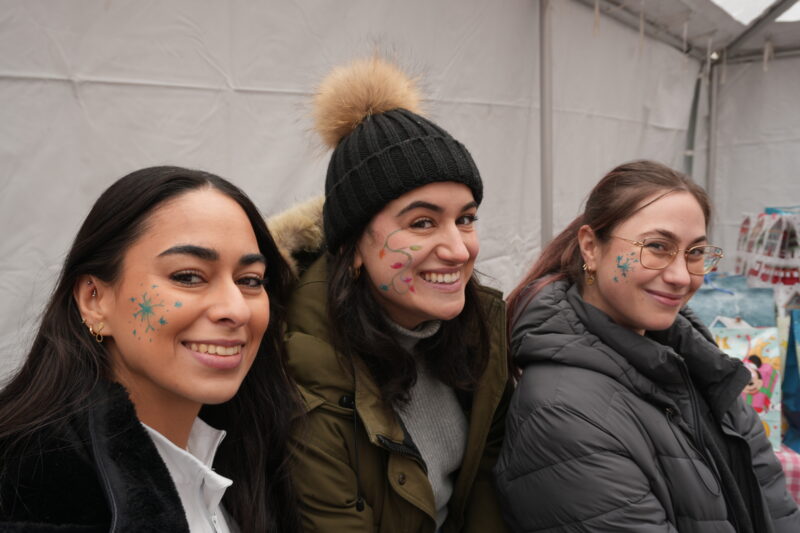Black History Month serves as a time to reflect on the significant contributions of the black community to society, as well as to address the ongoing challenges faced by black individuals. Among these challenges is the issue of sexual orientation bias. For 2SLGBTQIA+ women, the battle for familial acceptance is not merely about gaining approval, but about affirming their right to exist authentically within their own communities. The intersectional discrimination they face can lead to a heightened sense of vulnerability, particularly within the family unit where acceptance is often equated with love and support.
Throughout Black history month, we will be highlighting stories from our Black Canadian and Refugee clients, as they negotiate into a new life, guided by the transformative powers of home and community.
One of such stories is an interview with one of our residents, AB, a 50-year-old lesbian born in Ghana, West Africa. Her story embodies resilience, standing firm in her identity, and advocating for her right to be heard.
AB came to Toronto as a refugee six years ago. She speaks Twi and has been attending English classes. AB has not had contact with her family in the last three years, as she was rejected because of her sexual orientation. The rejection cast a shadow over her efforts to rebuild her life here in Toronto, leaving her disheartened. She vividly recalls the anti-gay laws in Ghana, which pose a threat of police persecution of the 2SLGBTQIA+ community, a stark reality that compelled her to flee. With tears in her eyes, AB admits that “the biggest pain is not being able to speak with her mother”.

Embracing a New Chapter
AB’s path to a more stable life was paved by a referral from the Florence Booth/Salvation Army shelter to Homes First. The initial days at the shelter were fraught with anxiety, exacerbated by her limited English and her unfamiliarity with the dynamics in the shelter. However, the Florence Booth staff’s warm reception and unwavering support left an indelible mark of gratitude on her. Their guidance firstly led her to get a shared unit in one of Homes First supportive housing sites, and after a short period, she moved into her very own unit at another Homes First site. Her life completely changed for the better.
Charting a Course for Independence
When reflecting about her settlement process, AB says that her primary goal for 2024 is to secure employment, further her English studies and to reduce her reliance on the social services system. She is currently volunteering at a social service agency to bolster her resume and secure a professional reference. She recognizes the critical role of English fluency in realizing her ambitions, which include pursuing studies in Early Childhood Education or as a Personal Support Worker.
Her advice to fellow immigrants and refugees in Toronto is to stay grounded in the present and navigate the settlement process with care. She stresses the importance of prudent financial management, the pursuit of education to improve English proficiency, and strategic planning for a future in Canada. While acknowledging the emotional toll of migration, such as sadness and longing for home, she urges others to focus on daily life, cultivate friendships across cultures, and seek mental health support when necessary. Her message is one of living in the moment and wholeheartedly embracing the path that lies ahead.
AB’s story is a testament to the strength and perseverance required to overcome discrimination and build a new life against all odds.
The importance of a home cannot be overstated. It is a fundamental human need that serves as the bedrock for safety, stability, and personal growth. By focusing on the issue of homelessness and working towards ensuring that everyone has access to a safe space, we can help unlock the potential within individuals and strengthen our communities. The journey from homelessness to Homefull is not just about putting a roof over one’s head—it’s about creating a foundation for a brighter future.
Make a difference today and join us in breaking the cycle of homelessness for people with the fewest housing options.
For information on Ghana’s 2SLGBTQIA+ human rights situation, we’ve compiled a few links:
Ghana’s Anti-LGBT Push Will Harm Its Democracy
A proposed law in Ghana would require citizens to report 2SLGBTQIA+ people to authorities


